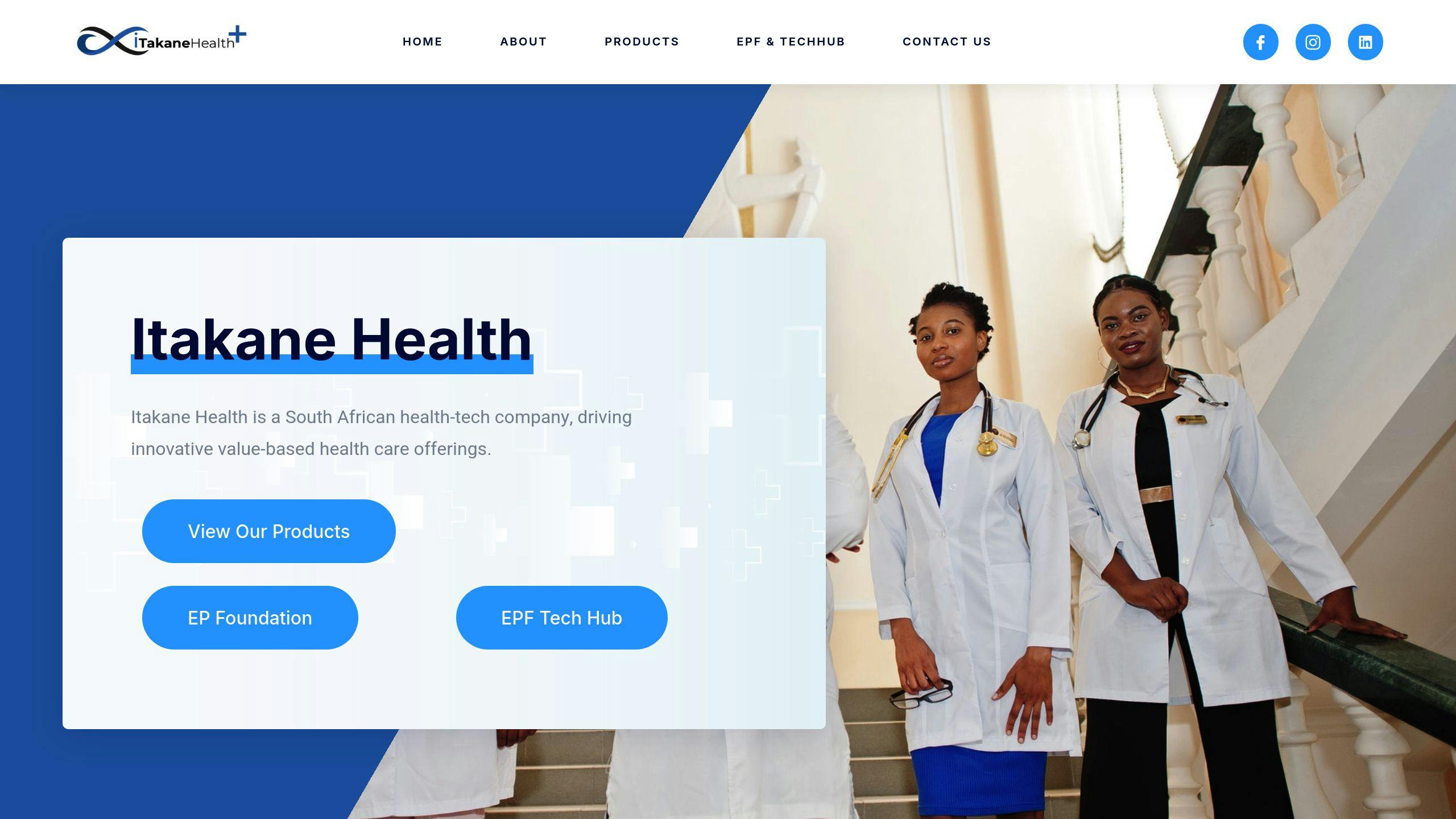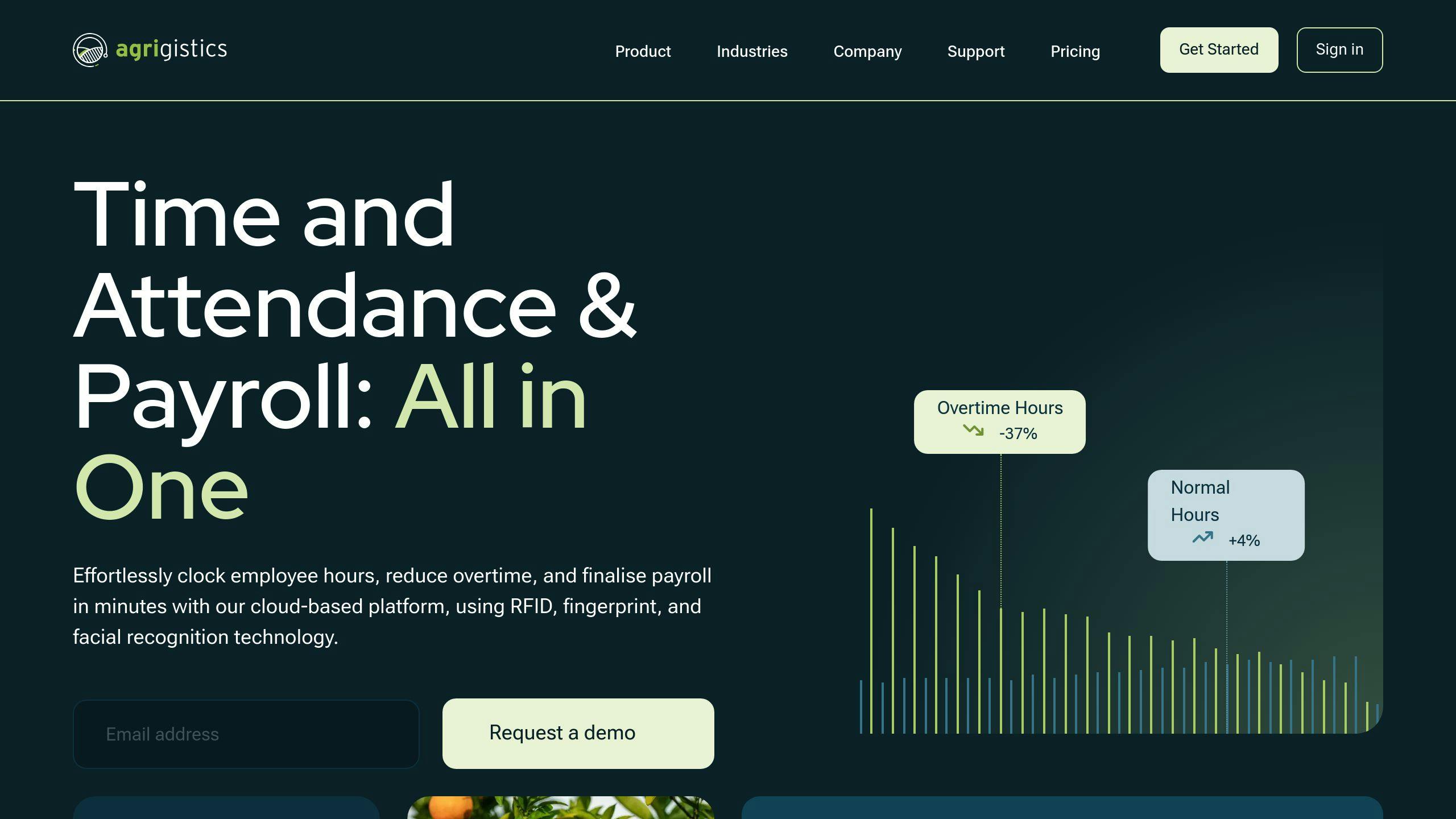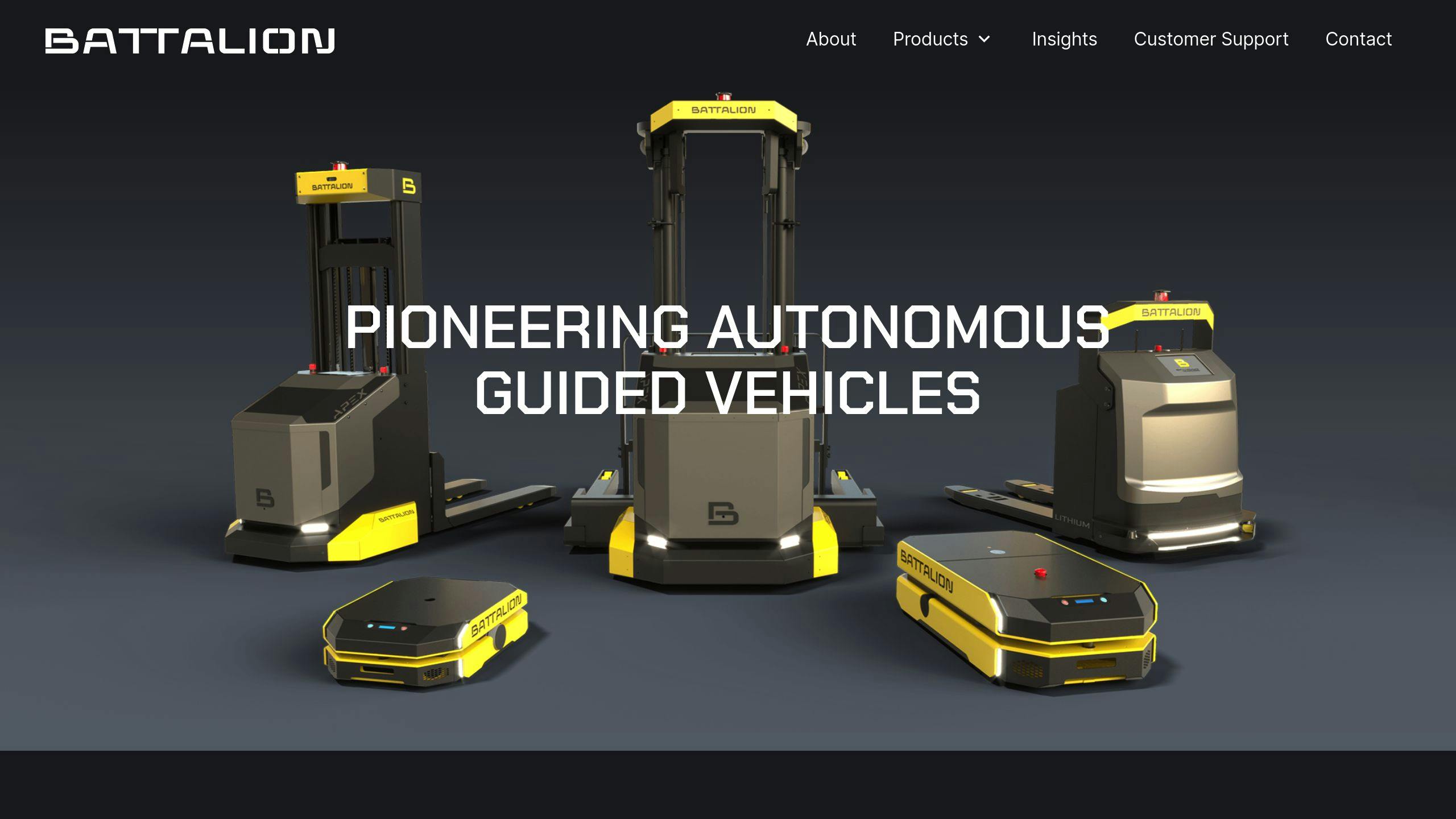South Africa’s startup ecosystem is booming, with tech hubs like Cape Town and Johannesburg driving innovation in fintech, healthcare, agriculture, and renewable energy. Here are five startups making waves in 2025:
- Stitch: Revolutionizing financial transactions with tools like LinkPay and PayOS, backed by $52M in funding.
- Itakane Health: Improving healthcare access with AI diagnostics and telemedicine, cutting costs by 25%.
- Agrigistics: Streamlining agriculture with digital labor and payroll management, reducing errors by 90%.
- Flow: Simplifying property management with automated rent collection and tenant management tools.
- BATTALION Technologies: Enhancing renewable energy operations with autonomous guided vehicles (AGVs).
These startups are solving local challenges while positioning South Africa as a leader in tech innovation. Keep reading to see how they’re shaping industries and driving growth.
Africa’s Rising Stars: Top 10 African Entrepreneurs to Watch in 2025
1. Stitch: Transforming Fintech Solutions

Founded in 2019 in Cape Town, Stitch has quickly become a major player in Africa’s fintech scene. The company focuses on open banking and payment infrastructure, reshaping how financial transactions are handled across the continent.
Stitch introduced LinkPay, Africa’s first tokenized payments API, along with the PayOS dashboard, which simplifies managing payments across multiple regions. These tools have caught the attention of investors and businesses alike.
In 2023, Stitch raised an additional $25 million in Series A funding, bringing their total to $52 million [3]. This funding has supported their expansion beyond South Africa, reaching Nigeria and other African markets.
Their reliability and scalability are evident in partnerships with major names like MTN and Standard Bank‘s SnapScan [3]. These collaborations underline the trust leading companies place in Stitch’s solutions.
“We’ve known the Ribbit team for years and are impressed by their deep understanding of emerging markets.” – Kiaan Pillay, Co-founder and CEO of Stitch [3]
Beyond payments, Stitch is developing Africa’s “financial graph” [2]. This network aims to help businesses access user accounts and launch new products more effectively. Their payment tools are designed to streamline transactions and broaden financial access across the continent.
With cutting-edge technology, strong funding, and a growing presence in multiple markets, Stitch is well-positioned to reshape Africa’s financial services. Their cross-border growth and enterprise collaborations further emphasize their role in driving change in the industry.
2. Itakane Health: Improving Healthcare Access

Itakane Health is transforming healthcare in South Africa by putting a strong focus on preventative care through digital tools. In a region that carries 24% of the global disease burden but has just 3% of the global health workforce, their AI-driven platform has made a real impact – cutting hospital admissions by 30% and reducing healthcare costs by 25%.
Their platform includes AI diagnostics for spotting health issues early, telemedicine for remote consultations, personalized care plans, and data analytics to guide better decisions. With Africa’s Digital Health market expected to hit $10.42 billion by 2027, their subscription-based model is helping expand healthcare access while remaining financially sustainable.
Itakane works closely with local healthcare providers to tackle the unique challenges of delivering care in rural areas. By designing easy-to-use digital tools with input from community stakeholders, they ensure the solutions are practical and effective for South African communities.
“Digital health has become an effective, innovative tool that is helping break barriers, enabling rural access to health care, and advancing early detection of infectious diseases”, says Ibraheem Olasunkanmi Qoseem.
Looking ahead, Itakane plans to enhance its platform and expand into nearby countries. Their growth highlights how South African startups are using technology to tackle major societal issues, particularly in healthcare access and preventative care.
sbb-itb-dd089af
3. Agrigistics: Modernizing Agriculture

Agrigistics is transforming South Africa’s agricultural sector with a digital platform designed to tackle workforce inefficiencies. This labor and payroll management system uses advanced tools to automate tasks, cutting down on administrative work and boosting productivity.
What sets Agrigistics apart is its focus on the specific needs of South African farmers. The platform is tailored to handle challenges like managing seasonal workers and meeting compliance standards. It integrates easily with existing farm systems, making it simple to adopt and delivering noticeable improvements in day-to-day operations.
Key features include digital time tracking, automated payroll, workforce analytics, and compliance management. These tools reduce errors by 90%, cut payroll processing time by 75%, and improve labor allocation by 20%. With these efficiencies, farmers can spend less time on paperwork and more time growing their businesses.
The company’s success has attracted strong investor support, reflecting its value in a sector eager for modernization. As South African agriculture evolves, farms are turning to solutions like Agrigistics to operate more efficiently and scale effectively.
Looking ahead, Agrigistics plans to expand beyond South Africa, building on its track record of addressing critical farming challenges. Its approach highlights how local innovations can have a global impact on agriculture.
While Agrigistics is reshaping agriculture, Flow is driving similar advancements in property management, another vital sector in South Africa.
4. Flow: Simplifying Property Management

Flow is reshaping property management in South Africa with its digital platform. Founded in 2017 by Gil Sperling and Daniel Levy, the company has quickly become a prominent name in property technology.
The platform tackles common challenges in property management and delivers clear results. For instance, its automated rent collection system has reduced late payments by 30%, while its maintenance management feature has cut response times for property issues in half. Property managers using Flow have also reported a 25% drop in administrative costs and a 40% decrease in tenant turnover – clear indicators of how the platform is modernizing the industry.
Flow’s growth has been fueled by investments from CRE Venture Capital and HAVAÍC, which have supported both platform improvements and market expansion. In South Africa, where property managers often struggle with rent collection, maintenance coordination, and tenant management, Flow’s solutions provide much-needed relief. With the local property management market expected to grow at a 10.3% annual rate from 2020 to 2025, Flow is well-positioned to take advantage of this opportunity.
A key strength of Flow’s platform is its seamless integration with existing systems, making it appealing to property owners who want to modernize without disrupting their operations. Its features include automated rent collection, maintenance tracking, tenant screening, and administrative tools, all tailored to address the specific needs of the South African market.
As Flow continues to grow, its focus remains on improving property management through technology. The company’s ability to solve local challenges sets it up for broader success across Africa.
While Flow transforms property management, BATTALION Technologies is making waves in renewable energy innovation.

BATTALION Technologies is making waves in South Africa’s renewable energy sector by using advanced automation to improve the efficiency of solar and wind farm operations. Their autonomous guided vehicle (AGV) technology is designed to meet the increasing need for streamlined renewable energy management.
South Africa’s renewable energy sector is growing, supported by investments such as a €400 million partnership between the European Investment Bank and FirstRand Bank. This financial backing creates an environment where BATTALION’s AGV solutions can thrive, helping the company expand its reach and refine its technology.
The company’s AGVs tackle key challenges for renewable energy operators by reducing maintenance costs, enhancing inspection precision, and speeding up processes. These advancements align with Africa’s renewable energy goals, making solar and wind power more efficient and accessible.
Africa boasts 60% of the world’s prime solar resources, placing BATTALION in a strong position to contribute to the continent’s energy growth. Their automation-focused solutions align with a broader shift toward technology-driven efficiency in renewable energy, making them a compelling choice for operators aiming to optimize performance.
South Africa’s supportive investment landscape further fuels BATTALION’s growth. Initiatives like the €400 million renewable energy fund and the Persistent Africa Climate Venture Builder Fund provide essential funding, enabling the company to scale its operations. By focusing on practical and efficiency-driven solutions, BATTALION is well-equipped to take advantage of South Africa’s rising prominence in the global renewable energy market.
BATTALION Technologies highlights how South African startups are pushing boundaries in key industries, solidifying the country’s reputation as a hub for renewable energy innovation.
Conclusion
South Africa’s startup scene is on an upward trajectory, with the digital economy expected to hit $180 billion and tech startups pulling in over $6 billion in funding. The five startups highlighted here are reshaping key industries in the country.
Take Stitch, for example. With $52 million in funding and a team of over 80 employees, it’s transforming payment infrastructure. From healthcare to renewable energy, these startups showcase the potential of South Africa as a tech hub. They’re not just changing their sectors – they’re also boosting the country’s economy and positioning it as a competitive player on the global stage.
The progress of these startups mirrors the growing strength of South Africa’s innovation landscape. Their accomplishments are helping to solidify the country’s reputation as a thriving startup ecosystem [1], offering increasing opportunities for entrepreneurs, investors, and tech talent.
For anyone interested in tapping into these opportunities, keeping an eye on these startups is crucial. As 2025 unfolds, these companies aren’t just ones to watch – they symbolize the future of South African tech, driving economic growth and advancing technology across the continent. Their journey is an inspiration for entrepreneurs and a testament to South Africa’s expanding influence in the global tech world.









